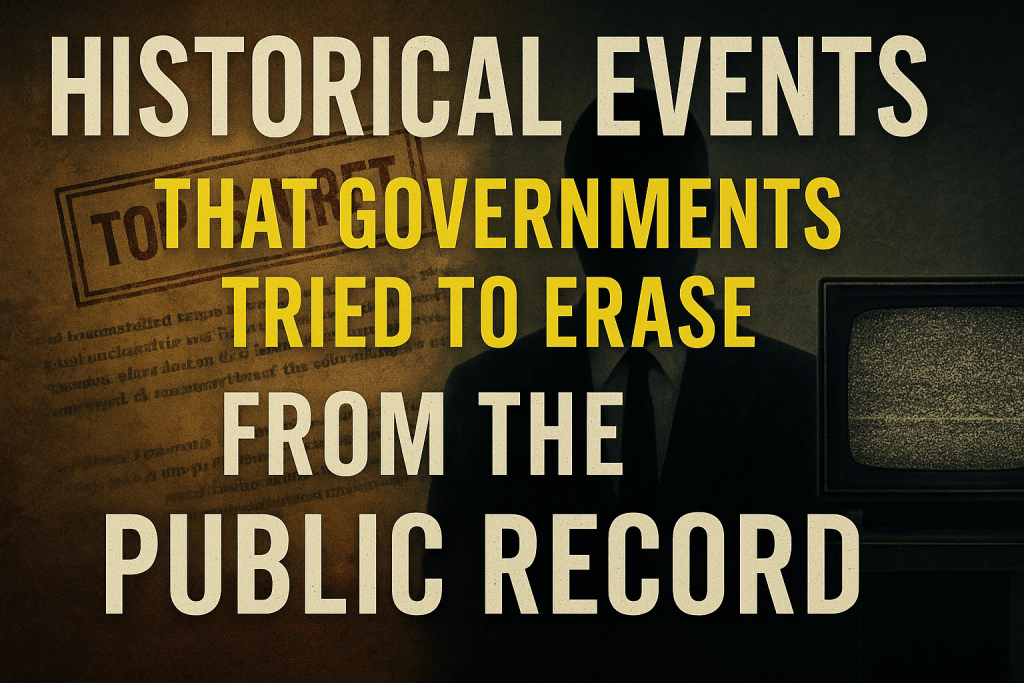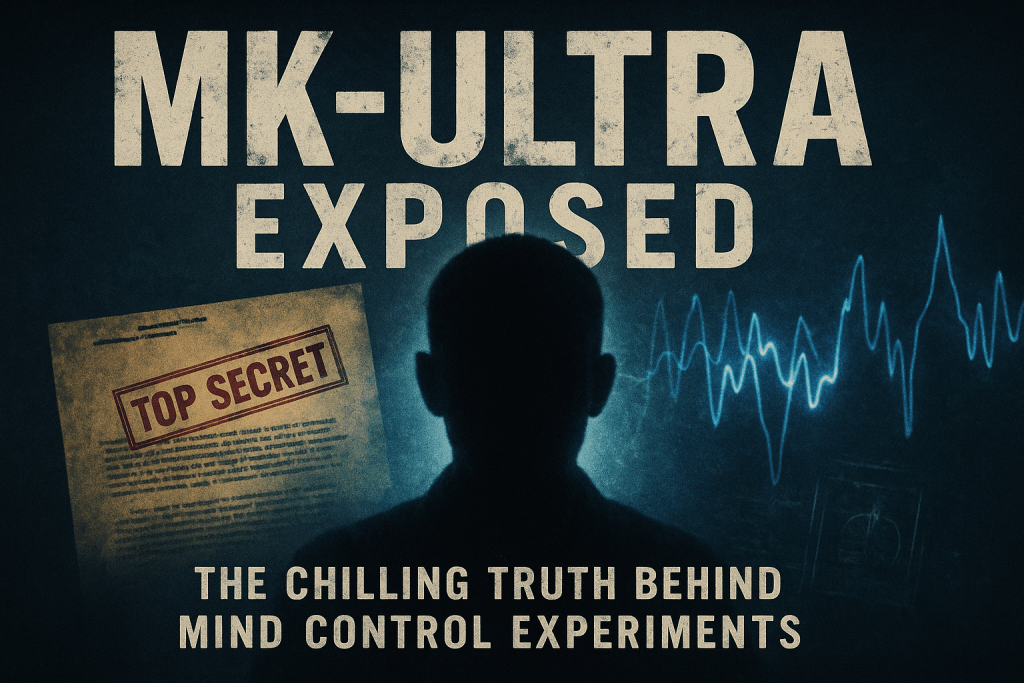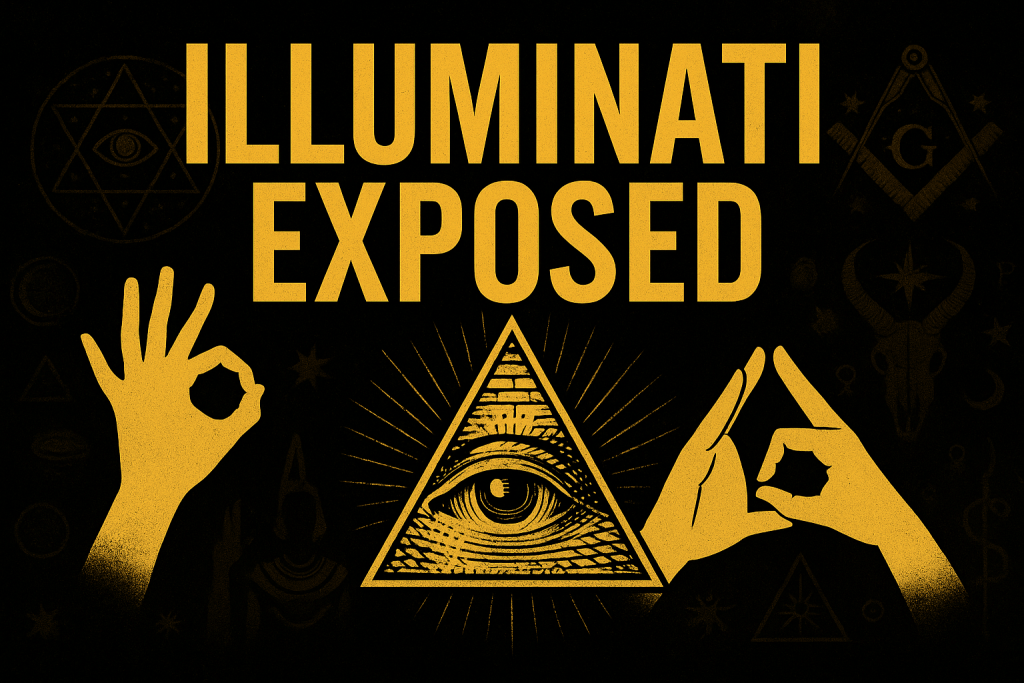Introduction: erased history

History is supposed to tell us what happened.
But what if some events were so uncomfortable, threatening, or politically inconvenient that they were buried — deliberately erased, reshaped, or denied?
This isn’t about forgotten footnotes.
This is about entire chapters of humanity’s story being stripped away,
leaving us with a hollowed-out version of the past.
Here are the stories they didn’t want you to know.
1️⃣ The Tulsa Race Massacre (1921): A City Burned, Then Erased
In June 1921, Tulsa’s Greenwood District — known as “Black Wall Street” — was thriving.
African-American entrepreneurs, doctors, lawyers, and business owners built one of the wealthiest Black communities in the U.S.
But on May 31, a white mob, enraged by a false accusation against a young Black man, descended on the district.
Over two days, they looted businesses, burned homes, and even used private planes to drop firebombs.
The official death toll was listed as 36, but historians estimate the real number was over 300.
Why was this erased?
At the time, local newspapers stopped reporting on it.
City leaders covered up the destruction, insurance claims were denied, and survivors were threatened into silence.
For decades, even local schools didn’t teach it — because acknowledging it would mean confronting uncomfortable truths about racism, power, and complicity.
2️⃣ Operation Northwoods (1962): A False Flag Plan Hidden in the Shadows
During the Cold War, the U.S. military feared losing ground to Castro’s Cuba.
In 1962, top Pentagon officials drafted Operation Northwoods:
a plan to stage fake terrorist attacks on American soil — hijackings, bombings, even sinking a U.S. ship — and blame Cuba, creating a pretext for invasion.
Thankfully, President Kennedy rejected the plan.
But why was it hidden?
When the documents were declassified in the 1990s, they shocked historians:
this wasn’t just war planning — it was an official blueprint for deceiving the American public.
Some theorize the documents were buried to protect the reputations of military leaders,
while others believe it revealed just how close the U.S. came to manufacturing wars for political gain.
3️⃣ The Great Chinese Famine (1959–1961): 30 Million Dead in Silence
In 1958, Chairman Mao launched the Great Leap Forward, an aggressive push to industrialize China.
Peasants were forced into collective farms, steel production was prioritized over food,
and local officials lied about harvest yields to meet impossible targets.
By 1959, famine spread.
Children starved, parents scavenged for bark and dirt, villages collapsed.
Estimates say 30 to 45 million people died — one of the deadliest man-made disasters in history.
Why does no one talk about it?
Because the Chinese Communist Party tightly controlled the narrative.
Public mourning was banned, official records were manipulated,
and to this day, domestic textbooks downplay or omit the famine,
framing it as a temporary hardship rather than catastrophic state failure.
4️⃣ Operation Mockingbird (1950s–1970s): The CIA’s Hidden Media Empire
In the 1950s, the CIA launched Operation Mockingbird, an effort to influence major media outlets.
They recruited prominent journalists, funded news organizations, and fed them controlled narratives.
Names like The New York Times, Time magazine, and CBS appeared in declassified documents.
At its height, it’s believed the operation touched hundreds of reporters worldwide.
Why is it barely mentioned?
Because acknowledging it forces uncomfortable questions:
If the media was infiltrated then,
who’s to say it isn’t happening now?
Some theorists argue Operation Mockingbird didn’t end —
it simply evolved, merging into modern-day media ecosystems, where state and corporate interests subtly shape public discourse.
5️⃣ The Armenian Genocide (1915–1923): A Crime Without a Name
During World War I, the Ottoman Empire systematically killed over 1.5 million Armenians through mass deportations, death marches, and massacres.
Why has this been buried?
Because for over a century, Turkey has fiercely denied it.
Even today, many governments avoid officially recognizing the genocide,
fearing diplomatic fallout with a key NATO ally.
Schoolbooks use soft language — “tragedy,” “conflict,” “mass killings” —
avoiding the legal weight and moral reckoning that come with calling it genocide.
6️⃣ The 1953 Iran Coup: A Democracy Dismantled for Oil
In 1951, Iranian Prime Minister Mohammad Mossadegh nationalized Iran’s oil industry,
challenging British and American corporate interests.
Two years later, the CIA and British intelligence orchestrated Operation Ajax —
a coup that overthrew Mossadegh and installed the Shah,
ushering in decades of autocratic rule.
Why is this so rarely discussed?
Because it shatters the image of Western democracies as promoters of freedom.
Instead, it reveals a cold calculus:
oil profits over democracy, regime change over self-determination.
7️⃣ Forgotten Indigenous Civilizations: The Erased Greatness
Long before European colonization, the Americas were home to massive, advanced civilizations.
The Mississippian culture built vast cities like Cahokia, with pyramids and complex trade networks.
In the Amazon, recent lidar scans have uncovered massive earthworks and settlement patterns,
suggesting the rainforest was once home to millions, living in sophisticated engineered landscapes.
Why do textbooks barely mention them?
Because colonial narratives thrived on the myth of the “empty,” primitive land
that justified conquest and eradication.
Admitting the scale of what was lost — and what was erased —
forces a painful reevaluation of history.
8️⃣ The Secret History of Psychological Warfare
From Nazi Germany’s use of propaganda,
to Cold War disinformation campaigns,
to modern social media psy-ops,
governments and corporations have long weaponized information to shape public opinion.
Yet schools rarely teach the mechanics of how populations are manipulated.
Why?
Because understanding the tools of manipulation makes you harder to control.
Why This Matters: erased history
Erased history isn’t just about the past.
It’s about power — who controls the story, who benefits from forgetting,
and how silence shapes the present.
To reclaim these stories is to reclaim a piece of our collective truth.

